Look What Your Belly Button Says About Your Health

The belly button is an area in the body that often receives less attention, unless you are the type to constantly check and ensure it gets cleaned. Some people might even find belly buttons or the navel burdensome. However, new research about belly buttons and what they say about your health might just change the way you think.
Although everyone is born with a belly button, each one is surprisingly unique. Not only can they tell something about your health but also your personality or level of perceived attractiveness.
Here are different types of belly buttons, and let's check out which type you belong to:
Types of Belly Button
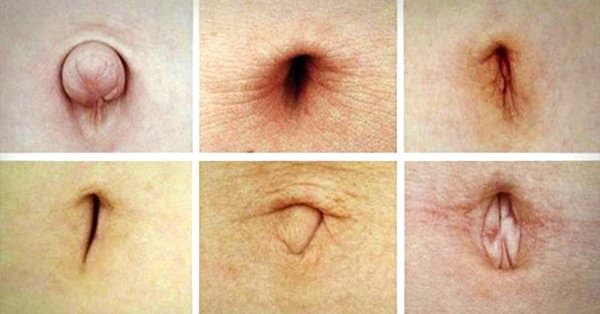
Bulged Belly Button – Like A Button
A somewhat bulged navel is acceptable, but if you see that the bulge is more pronounced than usual, it could mean that you have lifted something heavy. It could also put you at risk of a hernia.
Little Bulge
People that have belly buttons that slightly bulge are said to be more prone to the flu virus.
Tucked Navel
People who have tucked navels are said to have weight problems. Also, these people are said to commonly experience problems with digestion like constipation.
Almond-shaped
This belly button shape means that people are more likely to experience muscle pains and migraines. Also, bone weakness has been observed.
Bulged with a U-form
This is one of the most beautiful forms of navels, but it indicates a person's risk of having skin and kidney diseases. Also, children are less likely to be born with genetic abnormalities.
What the Shape Of Your Belly Button Says About Your Personality:
Do you have a round belly button? Would you describe it as big, shallow, or circular? Belly buttons can also say something about your character. Check out the photos below and see if any of them are true.
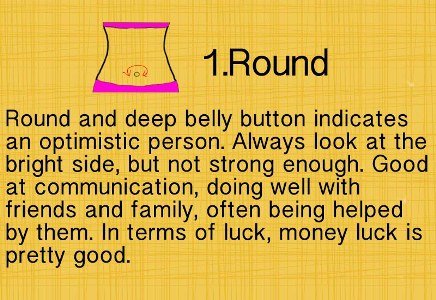
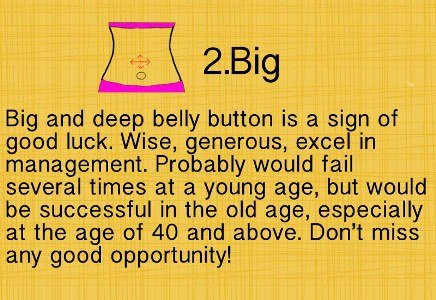


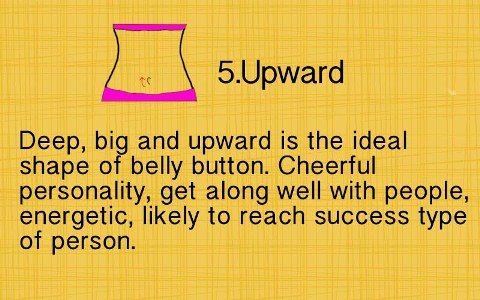

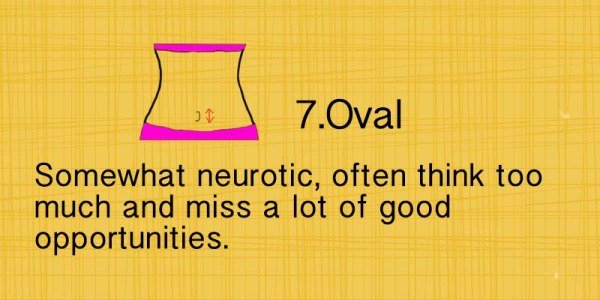

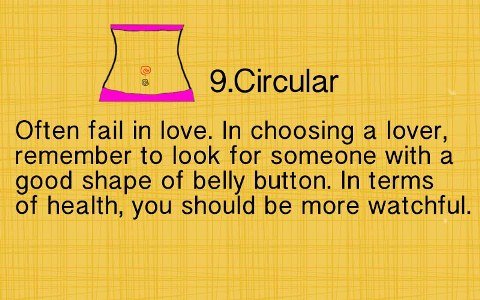
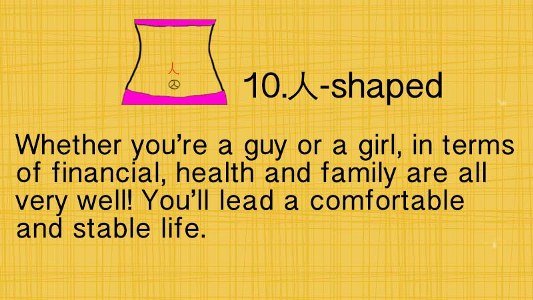
DISCLAIMER: THIS WEBSITE DOES NOT PROVIDE MEDICAL ADVICE The information, including but not limited to, text, graphics, images and other material contained on this website are for informational purposes only. The purpose of this website is to promote broad consumer understanding and knowledge of various health topics. It is not intended to be a substitute for professional medical advice, diagnosis or treatment. Always seek the advice of your physician or other qualified health care provider with any questions you may have regarding a medical condition or treatment and before undertaking a new health care regimen, and never disregard professional medical advice or delay in seeking it because of something you have read on this website.
